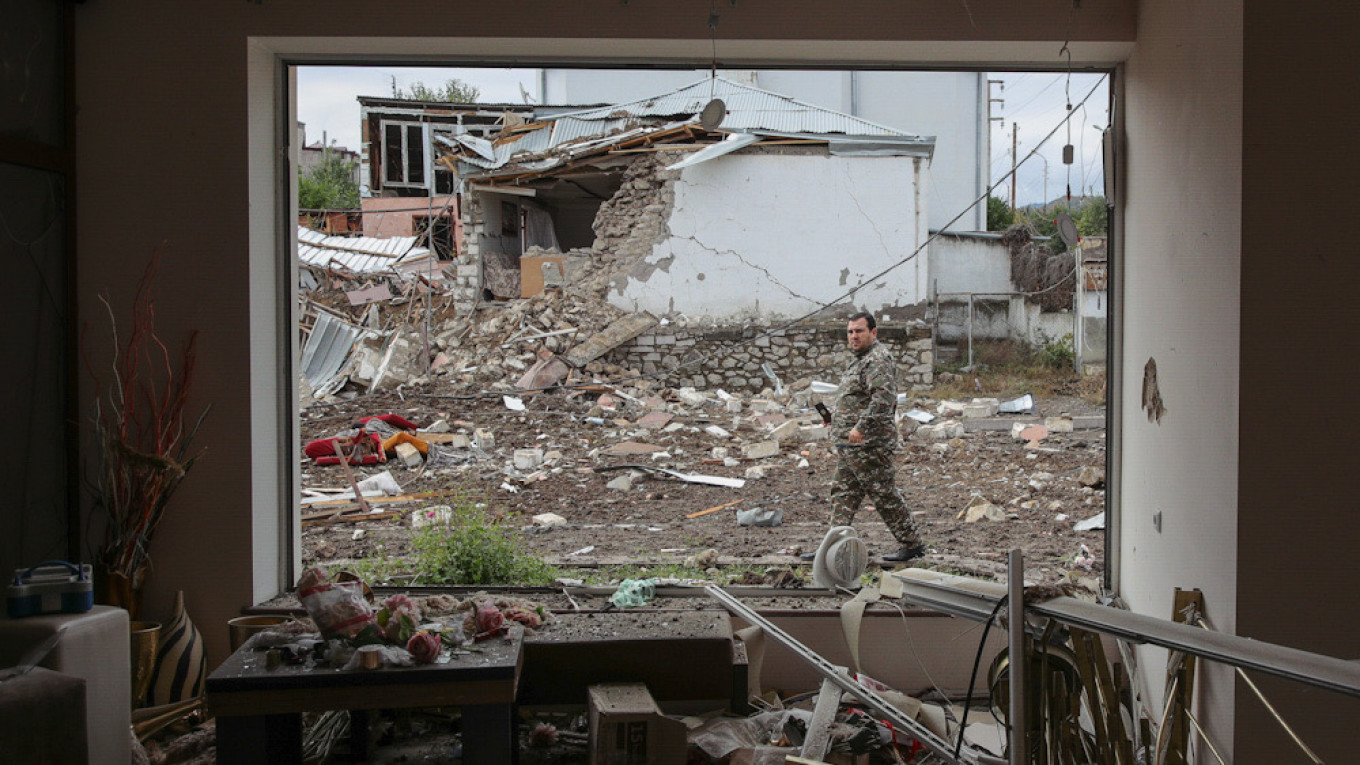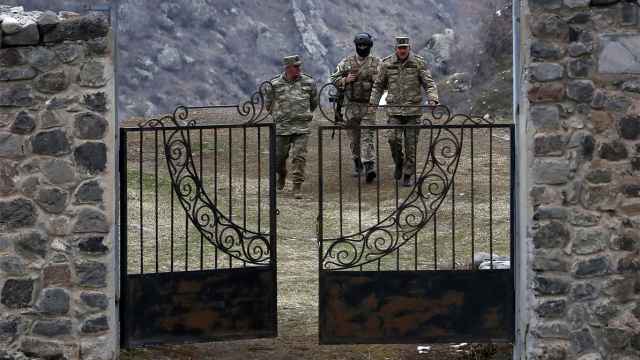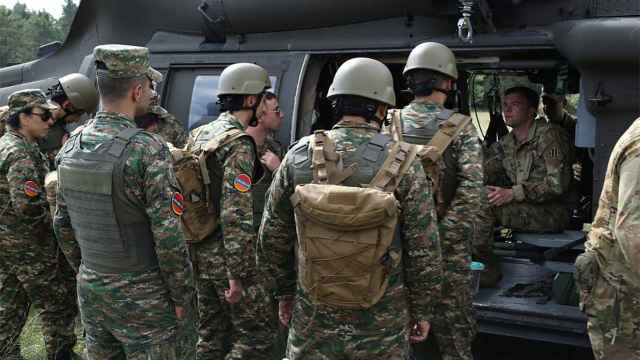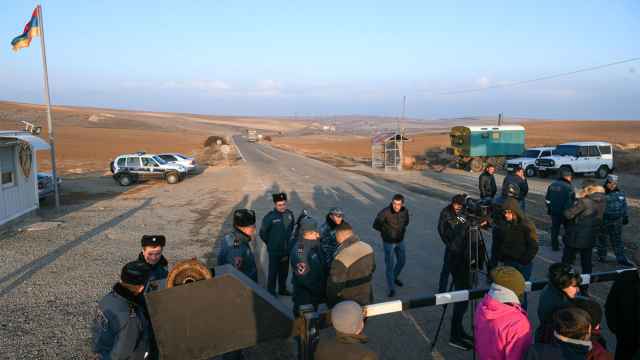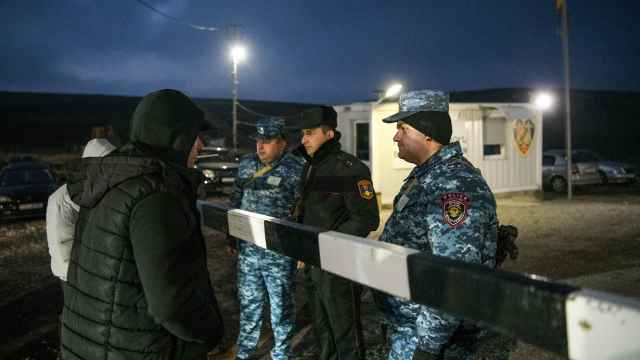Amnesty International said Thursday Azerbaijan and Armenia must immediately probe the use of "inaccurate and indiscriminate weapons" in heavily populated civilian areas during the recent fighting over the disputed Nagorno-Karabakh territory.
Azerbaijan and Armenia in November signed a Moscow-brokered peace deal ending six weeks of brutal war over the breakaway Karabakh region after Baku's forces overwhelmed Armenia-backed separatists.
Both sides have denied targeting civilians during the conflict "despite clear evidence they have both done so," Amnesty said in a press release, noting they did so with cluster munitions and explosive weapons.
"Civilians were killed, families were torn apart and countless homes were destroyed," said Marie Struthers, the rights group's Eastern Europe and Central Asia director.
"Attacks were repeatedly carried out on civilian residential areas far from frontlines, and where there often did not appear to be any military targets in the vicinity," she added.
Amnesty said it had analyzed "17 strikes by Armenian and Azerbaijan forces which unlawfully killed civilians" and "visited dozens of strike sites" in the two ex-Soviet countries after the peace deal was agreed.
The rights group said eight of those strikes were launched by Armenian forces on towns and villages in Azerbaijan that killed 72 civilians, while nine strikes were carried out by Azerbaijani forces on towns and villages in Karabakh and one town in Armenia, killing 11 civilians.
On Sep. 27, the first day of the conflict, the group said 12 missile strikes on the Armenian city of Martuni killed an eight-year-old girl and injured her two-year-old brother.
"My little boy now still wakes up saying that there are planes in the sky bombing," their mother Anahit Gevorgyan told Amnesty.
The group noted that both sides had violated international law by employing unguided multiple launch rocket systems and artillery on the civilian areas, while Armenian forces also used inaccurate ballistic missiles.
In the Azerbaijani city of Ganja, 64-year-old Ramiz Gahramanov told Amnesty he lost his daughter and three of her children on Oct. 17, a day when 21 civilians were killed during a ballistic missile strike, the rights group said.
Amnesty said that 146 civilians died in the conflict, which claimed the lives of more than 6,000 people.
A Message from The Moscow Times:
Dear readers,
We are facing unprecedented challenges. Russia's Prosecutor General's Office has designated The Moscow Times as an "undesirable" organization, criminalizing our work and putting our staff at risk of prosecution. This follows our earlier unjust labeling as a "foreign agent."
These actions are direct attempts to silence independent journalism in Russia. The authorities claim our work "discredits the decisions of the Russian leadership." We see things differently: we strive to provide accurate, unbiased reporting on Russia.
We, the journalists of The Moscow Times, refuse to be silenced. But to continue our work, we need your help.
Your support, no matter how small, makes a world of difference. If you can, please support us monthly starting from just $2. It's quick to set up, and every contribution makes a significant impact.
By supporting The Moscow Times, you're defending open, independent journalism in the face of repression. Thank you for standing with us.
Remind me later.


